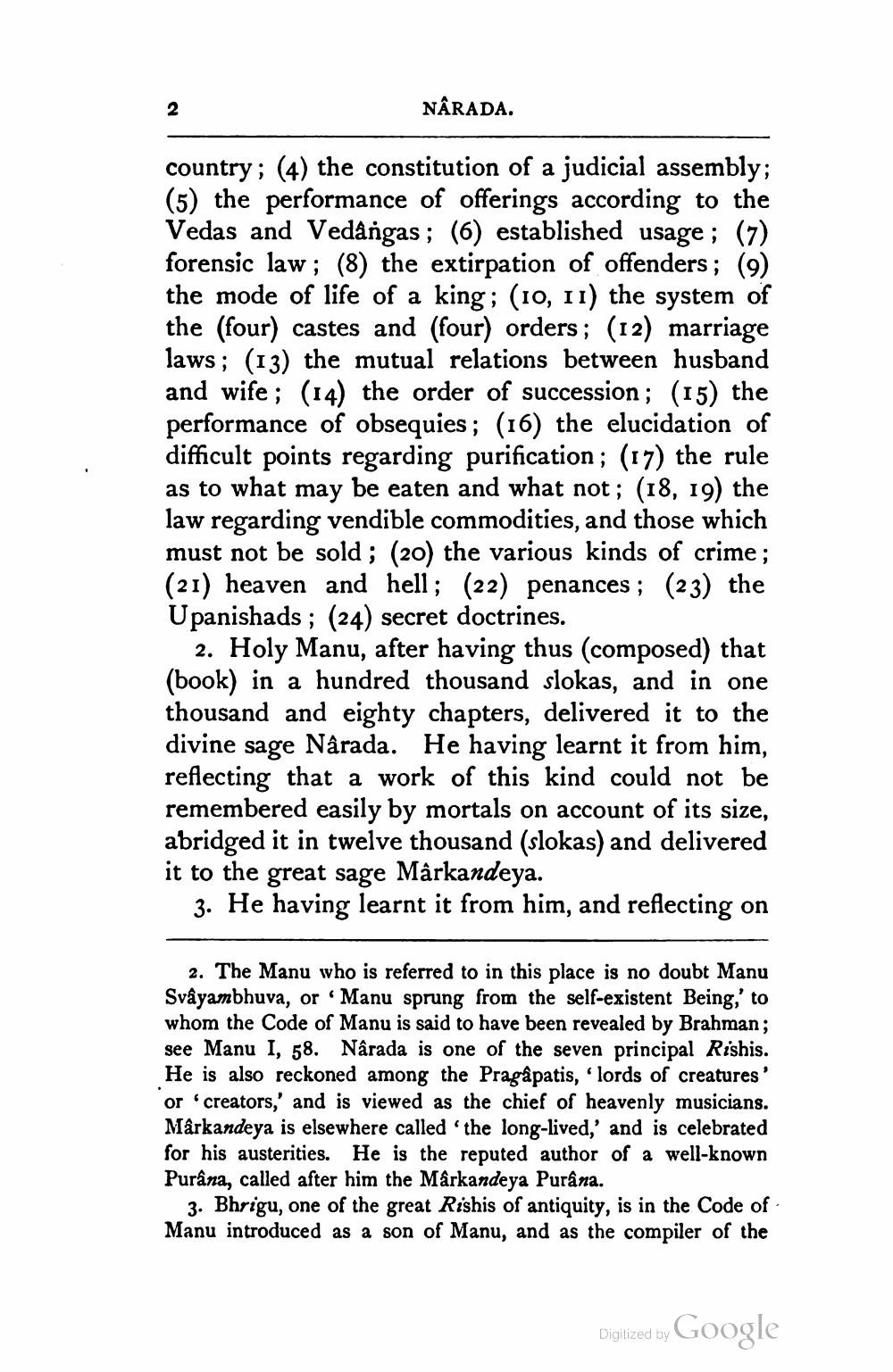________________
NÂRADA.
country; (4) the constitution of a judicial assembly; (5) the performance of offerings according to the Vedas and Vedangas ; (6) established usage ; (7) forensic law; (8) the extirpation of offenders; (9) the mode of life of a king ; (10, 11) the system of the (four) castes and (four) orders; (12) marriage laws; (13) the mutual relations between husband and wife; (14) the order of succession; (15) the performance of obsequies; (16) the elucidation of difficult points regarding purification ; (17) the rule as to what may be eaten and what not; (18, 19) the law regarding vendible commodities, and those which must not be sold ; (20) the various kinds of crime; (21) heaven and hell; (22) penances; (23) the Upanishads ; (24) secret doctrines.
2. Holy Manu, after having thus (composed) that (book) in a hundred thousand slokas, and in one thousand and eighty chapters, delivered it to the divine sage Nârada. He having learnt it from him, reflecting that a work of this kind could not be remembered easily by mortals on account of its size, abridged it in twelve thousand (slokas) and delivered it to the great sage Mârkandeya.
3. He having learnt it from him, and reflecting on
2. The Manu who is referred to in this place is no doubt Manu Svayambhuva, or Manu sprung from the self-existent Being,' to whom the Code of Manu is said to have been revealed by Brahman; see Manu I, 58. Narada is one of the seven principal Rishis. He is also reckoned among the Pragâpatis, 'lords of creatures' or creators,' and is viewed as the chief of heavenly musicians. Markandeya is elsewhere called 'the long-lived,' and is celebrated for his austerities. He is the reputed author of a well-known Purâna, called after him the Märkandeya Purana.
3. Bhrigu, one of the great Rishis of antiquity, is in the Code of Manu introduced as a son of Manu, and as the compiler of the
Digitized by Google




